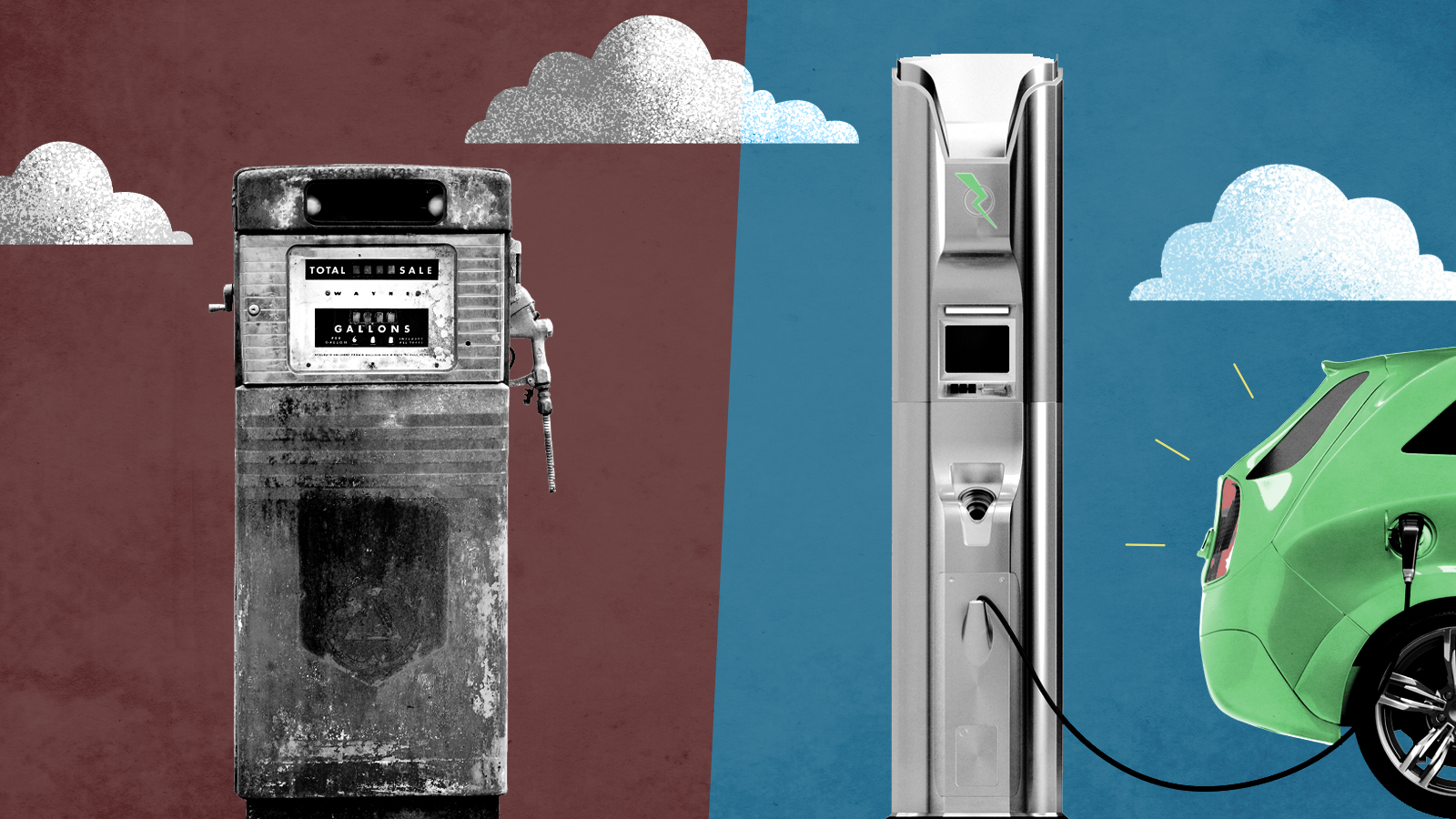The most underrated part of the electric revolution
No more gas price worries, and no more wars for oil


A free daily email with the biggest news stories of the day – and the best features from TheWeek.com
You are now subscribed
Your newsletter sign-up was successful
Prices increased rather quickly in October. The consumer price index (CPI) registered a 6.2 percent increase relative to last year — the highest monthly rate since 1990. Prices are up in many items (particularly meat), but the largest component of the price increase was energy. Gas prices are up 50 percent year-on-year, while fuel oil prices are up 59 percent.
These uncomfortable increases point to an underrated side benefit of climate policy and the future of electrification — by moving away from non-carbon sources of energy, America will free itself from its dependence on oil, and all the toxic political side effects that creates.
The first benefit is an immediate effect on public opinion. It's a firm rule of politics that voters respond to gas prices more strongly and immediately than any other price, and sure enough, today people are not happy. This is probably because of salience — while medical or housing prices are a much larger portion of most family budgets, and those prices have gone up much, much more than gasoline over the years, they tend to be hidden in long-term contracts or behind inscrutable insurance agreements. Paying at the pump is an obvious, easily-comparable transaction that most people do very frequently, so it stays at the top of the mind.
The Week
Escape your echo chamber. Get the facts behind the news, plus analysis from multiple perspectives.

Sign up for The Week's Free Newsletters
From our morning news briefing to a weekly Good News Newsletter, get the best of The Week delivered directly to your inbox.
From our morning news briefing to a weekly Good News Newsletter, get the best of The Week delivered directly to your inbox.
This is compounded by Americans' habit, partly cultural and partly a result of policy, of buying huge, inefficient trucks and SUVs. President Obama's fuel efficiency standards ironically incentivized manufacturers to build bigger cars, and general safety standards have made them steadily more heavy. And given that the Ford F-150 has been the top-selling vehicle in the country for the last 43 years straight (except for the second quarter of this year, thanks to a parts shortage), many Americans evidently love enormous, energy-hogging machines with terrible aerodynamics and poor visibility — especially when gas is cheap, as it was between about 2014 and this year.
The price of oil, like any commodity extracted out of the ground, is necessarily subject to unpredictable, large, and sustained price swings as wells run dry, new ones are drilled, new technologies are implemented, and so on. Tens of millions of people driving around school bus-sized behemoths every time they need a quart of milk is recipe for outrage whenever there's a spike in the price of gas — and that in turn bolsters demands for the Federal Reserve to strangle the economy, reduce incomes, and kill jobs so the price goes down.
The price of electricity, by contrast, is much more predictable. For most power utilities, customers have long-term contracts that specify prices that change only once a year or so. (Variable rate contracts do exist but they are terrible and not likely to catch on.) What's more, electric cars are vastly more energy efficient and so typically cost a lot less to operate. A recent study estimated that an electric car will have a lifetime fuel savings of about $7,750, though it will vary quite a bit depending on location and time of charging. The price of power does vary, but usually on a set schedule — it is often cheaper at night to incentivize people to spread out their power demand. With the rise of dirt-cheap solar and wind power (particularly rooftop solar owned by individuals) it will only get cheaper.
I don't love the fact that America is clearly headed towards an electrified version of our current wasteful suburban sprawl over the medium term, with perhaps some bike and pedestrian infrastructure in some cities. (An electric F-150 is already on sale, for delivery next year.) But at least chronic worries about gas prices will be a thing of the past, sooner or later.
A free daily email with the biggest news stories of the day – and the best features from TheWeek.com
A second huge benefit has to do with foreign policy. Now, as I've argued before, the global war on terror makes no sense at all as a strategy to secure oil supplies. It was a spectacular waste of money, and besides the U.S. is today the largest oil producer in the world. Still, America's decades-long fixation on the Middle East still can't be understood without reference to the region's possession of the largest amount of what was until very recently the most important commodity in the world. Oil underpins America's long alliance with the Saudis, it was why the U.S. and Britain toppled the democratic government of Iran in 1953, and it was one of the first things the Bush administration tried to secure when it invaded Iraq. When oil is no longer important, one of the biggest factors behind America's constant bungling imperialism will be removed, to the benefit of all humanity.
Now, all this is not to downplay the biggest reason to do climate policy — to fend off catastrophic climate change. But it's worth remembering there are many other ancillary benefits. The faster America pushes through the energy transition away from dirty, dangerous, and expensive oil energy, and into a zero-carbon future, the better off we'll be.
Ryan Cooper is a national correspondent at TheWeek.com. His work has appeared in the Washington Monthly, The New Republic, and the Washington Post.
